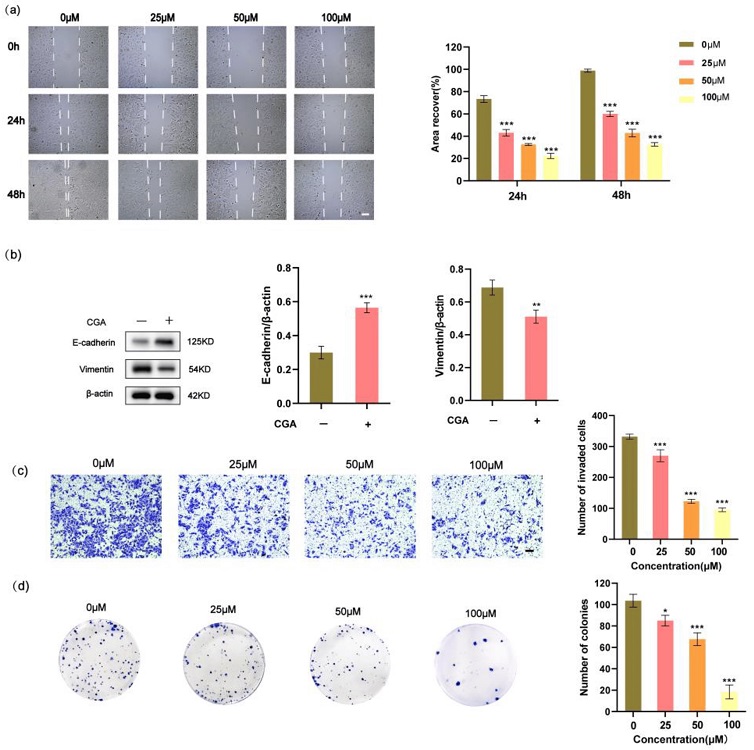Nikhil Prasad Fact checked by:Thailand Medical News Team Jun 19, 2024 1 year, 5 months, 3 weeks, 2 days, 17 hours, 3 minutes ago
Cancer News: The Rising Threat of Cholangiocarcinoma
Cholangiocarcinoma (CCA), a type of cancer that originates in the bile ducts, has been on the rise globally. Traditional treatments such as surgery, chemotherapy, and radiation therapy have had limited success, especially in advanced stages. There is an urgent need for new and effective treatments to improve outcomes for patients battling this aggressive cancer.
 Chlorogenic Acid - A Promising Hope for Bile Duct Cancer Treatment
Discovering the Power of Chlorogenic Acid
Chlorogenic Acid - A Promising Hope for Bile Duct Cancer Treatment
Discovering the Power of Chlorogenic Acid
Chlorogenic acid (CGA) is a naturally occurring compound found in many fruits, vegetables, and coffee. It has garnered attention for its potential health benefits, including neuroprotection, cardiovascular health, and anti-inflammatory properties. Recent studies have also highlighted CGA’s potential in fighting various cancers, including breast, lung, and colon cancer. However, its effects on cholangiocarcinoma were not well understood until now.
Research Unveils CGA’s Anti-Cancer Potential
A recent study conducted by researchers from Guangxi Medical University in China that is covered in this
Cancer News report has shed light on the powerful anti-tumor effects of CGA on cholangiocarcinoma. The study found that CGA significantly inhibits the proliferation, migration, and invasion of CCA cells. It also induces apoptosis (programmed cell death) and interferes with the cell cycle, preventing cancer cells from growing and spreading.
How CGA Works - Targeting the Root of Cancer
The study identified a key player in the battle against CCA: the protein AKR1B10. This protein is highly expressed in CCA cells and plays a crucial role in their survival and proliferation. CGA was found to bind to AKR1B10, reducing its expression and thereby inhibiting the growth of cancer cells. Additionally, CGA disrupted the activation of the AKT pathway, a critical signaling pathway that promotes cell survival and growth.
Boosting the Immune Response
Another exciting discovery was CGA’s ability to modulate the immune system. The study revealed that CGA promotes the polarization of tumor-associated macrophages (TAMs) towards an anti-tumor phenotype. These macrophages, which are a type of immune cell, can either support or fight cancer growth depending on their state. By shifting TAMs to an anti-tumor state, CGA enhances the body’s immune response against cancer cells. Moreover, CGA-treated macrophages were found to boost the activity of T-cells, further increasing their ability to target and kill cancer cells.
A Potential Game-Changer in Cancer Treatment
The findings of this study suggest that CGA could be a promising therapeutic agent for cholangiocarcinoma. Its ability to inhibit cancer cell growth, induce apoptosis, and enhance the immune response makes it a potential game-changer in the fight against this deadly cancer.
Next Steps - Clinical Trials and Future Research
While the results are promising, further research is needed to confirm CGA’s efficacy and safety in humans. Clinical trials will be essential to determine the appropriate dosage and delivery methods for CGA in cancer patients. Additionally, understanding the full range of CGA’s mechanisms will help in developing targeted therapies that maximize its anti-cancer potential.
Conclusion - Hope on the Horizon
Chlorogenic acid offers a glimmer of hope for patients with cholangiocarcinoma, a cancer with limited treatment options. This natural compound’s multi-faceted approach in combating cancer cells and boosting the immune system opens new avenues for effective treatment strategies. As research progresses, CGA could become an integral part of the therapeutic arsenal against cholangiocarcinoma, improving survival rates and quality of life for patients worldwide.
The study findings were published in the peer reviewed journal: Pharmaceuticals.
https://www.mdpi.com/1424-8247/17/6/794
For the latest
Cancer News, keep on logging to Thailand Medical News.
Read Also:
https://www.thailandmedical.news/news/researchers-develop-new-treatment-protocol-for-drug-resistance-advanced-bile-duct-cancer
https://www.thailandmedical.news/news/japanese-researchers-discover-new-biomarker-for-bile-duct-cancer
https://www.thailandmedical.news/news/incyte-secures-fda-priority-review-for-bile-duct-cancer-drug
https://www.thailandmedical.news/news/aspirin-lowers-risk-of-death-in-biliary-tract-cancer
